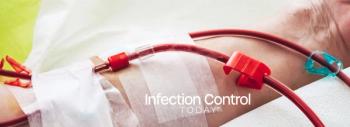
WHO Delays Labelling Coronavirus Outbreak an Emergency
Panel of WHO health experts will reconvene tomorrow.
A split decision equals no decision. The World Health Organization (WHO) International Health Regulations Emergency Committee and WHO director-general Tedros Adhanom Ghebreyesus, PhD, will reconvene tomorrow to decide on whether the Wuhan Coronavirus outbreak is a Public Health Emergency of International Concern (PHEIC). The panel of 16 experts couldn’t agree today, after discussing the matter for hours.
Today’s meeting came just 1 day after the US Centers for Disease Control and Prevention (CDC) announced the first Wuhan coronavirus case in the United States.
As of January 21, China’s National Health Commission has
Reports indicate that the city of Wuhan will be placed on public transport lockdown in order to reduce the spread of the virus.
“It’s stunning and concerning as it will likely cause a rush to get out before the new year and has questionable human rights implications," Saskia V. Popescu, PhD, an Infection Control Today® contributor said on the transportation lockdown. “It also has questionable efficacy in truly slowing transmission.”
WHO has also
China notified the WHO of a pneumonia outbreak of then-unknown etiology on December 31, 2019. On January 9, WHO released a
The US Department of Homeland Security’s Customs and Border Protection (CBP) and CDC
The first US case patient, arriving at Seattle-Tacoma airport, did not arrive in an airport being screened. The patient was not symptomatic at the time, and the flight was not a direct flight from Wuhan.
Additionally, the patient did not go to any implicated animal markets in Wuhan, nor did he report close contact with any ill individuals.
The patient had apparently researched the virus online, and upon developing symptoms reached out to his health care provider on January 19, 2020.
The Wuhan coronavirus was confirmed in the US patient on January 20, 2020. Public health officials from Washington indicated that the patient was hospitalized out of precaution but overall is in good condition.
Clinicians should gather travel history information in any suspected patients. Surveillance case definitions from WHO are available
The WHO case definitions include standards for patients with severe acute respiratory infection as well as acute respiratory illness.
A suspect case applies to patients with severe acute respiratory infection when there is no other etiology to explain clinical presentation of symptoms and travel to or residence in Wuhan. The definition also applies to patients who are not a health care worker in an environment where patients with severe acute respiratory infections of unknown etiology are being cared for.
A suspect case also applies to patients with any acute respiratory illness and close contact with a confirmed or probable case of Wuhan coronavirus, working in an animal market, or working in a health care facility with reports of the virus in the 14 days prior to onset of symptoms.
Probable cases are defined as suspect cases where Wuhan coronavirus testing is inconclusive or testing was positive on a pan-coronavirus assay. Confirmed cases are defined by laboratory confirmation of Wuhan coronavirus infection.
This first appeared in
Newsletter
Stay prepared and protected with Infection Control Today's newsletter, delivering essential updates, best practices, and expert insights for infection preventionists.




